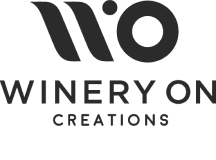Do you know how to report the existence of fake awards and medals in wines? What are their objectives and what consequences do they have for the sector and consumers?
How to Report Fake Awards and Medals in Wines
In an attempt to stand out from the competition, some wine producers include fake mentions and awards on their labels. The sole aim is to attract the attention of consumers who, upon seeing them, assume the quality of the wine is well proven.
This practice constitutes fraud and is prosecuted by the authorities. If proven, it can result in heavy financial penalties, as it involves misleading advertising and deceives consumers.
Regulation of Wine Awards
In countries such as Spain, France, and Italy, as well as throughout Europe, the regulation of medals awarded in wine competitions and contests is subject to a series of rules aimed at protecting both the consumer and the market. Each country has its own national legislation and is also bound by European regulations and international agreements that set out the framework for such awards.
In Spain, the legal framework is established by the “Unfair Competition Law” and the “General Advertising Law”. According to this legislation: “Any behaviour that contains false information or is likely to mislead the consumer, thereby affecting their economic decisions, is considered an act of unfair competition.” This includes the improper attribution of awards or medals and provides for penalties for companies that engage in such practices.
Mentions of awards typically appear on the wine label, since wine, being an agri-food product, must provide accurate information in its labelling and presentation. At the European level, there are regulations concerning food information provided to consumers. These regulations require transparency in any reference to awards or medals in the labelling and advertising of food and beverages, including wine.
What Happens When Non-Existent Awards Are Claimed
When a winery refers to awards that were never received, are fake, or correspond to a different vintage than the one being sold, it is engaging in misleading advertising. This can result in sanctions imposed by the Spanish Agency for Consumer Affairs, Food Safety and Nutrition (AECOSAN), part of the Ministry of Consumer Affairs. Penalties may range from the withdrawal of the product to financial fines. In more serious cases, affected consumers may take legal action to claim damages.
If the misleading information affects wines with a Protected Designation of Origin (PDO) or a Protected Geographical Indication (PGI), the offence is considered even more serious, as it also damages the reputation of the European quality scheme itself.
How to Report Misleading Advertising in the Wine Sector
Anyone who detects this type of irregular practice can (and should) report it—whether they are consumers, wineries, or associations. This can be done by contacting the regional consumer affairs departments or by reporting directly to the Ministry of Agriculture, Fisheries and Food. Consumer organisations can also be approached to submit the complaint.
The report may be filed in writing, in person or electronically, depending on the specific authority. In all cases, it is advisable to include any relevant information such as photos of labels, copies of the misleading advertisement, purchase receipts, etc.
How to Tell if an Award Mention Is Real or Fake
When a product refers to an award in its advertising, it should include: the exact name of the competition where the award was received, the year it was granted, the type of distinction, and a clear statement as to whether the medal refers to the vintage or specific batch of the wine being marketed. This is exactly what we do, for instance, with our DEMUERTE wines.
If any of this information is missing, doubts may arise, and verification is possible. Many international competitions publish official results that are accessible to the public.
Another piece of relevant information is the batch number of the wine, usually found on the label or cork. This number allows us to identify whether the wine being sold matches the awarded batch. If there is no match, the advertisement is misleading.
It is also important to check whether the mentioned competition is reputable or has official recognition, as there are contests with very low credibility that award medals without any proper evaluation process.
Real Cases of Fraudulent Use of Wine Medals
In 2020, the Spanish Association of Wine Cities (ACEVIN) detected several cases where wineries used medals from past competitions to promote wines from different vintages. This led to a public warning and voluntary corrections, highlighting the severity of misinforming consumers.
Internationally, in 2018, the organisation Wine Paris reported several Asian producers who claimed to have won awards from fake competitions or from events with invented names mimicking prestigious ones. Due to pressure from major trade fairs such as ProWein and Vinexpo, these companies were banned from participating until the matter was clarified.
The Importance of Staying Vigilant
All this shows that, despite regulations and control mechanisms, irregular practices still occur, putting consumer trust at risk. Vigilance is therefore essential to maintain transparency and protect the integrity of wine marketing.


